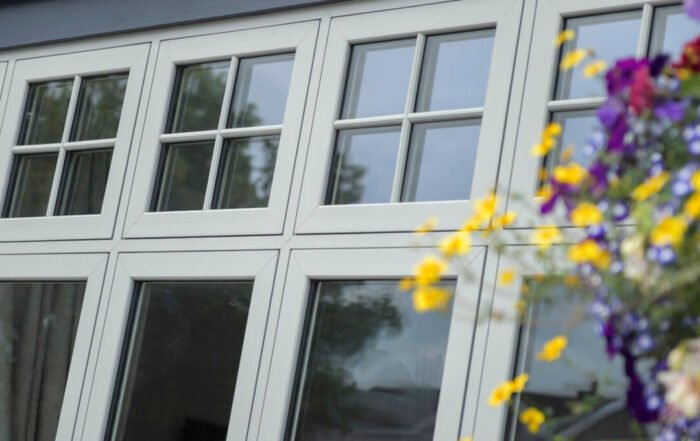Energy Efficiency
The Imperative of Energy Efficiency in 2026
In an era where sustainability is at the forefront of global concerns, understanding and implementing energy-efficient practices are pivotal. Energy efficiency goes beyond mere conservation; it’s about optimising our resource use to reduce environmental impact and, concurrently, cutting down on costs. In this comprehensive article, we delve into the various facets of energy efficiency, exploring its significance, implementation, and the manifold benefits it offers.
Understanding Energy Efficiency
Foundations of Energy Efficiency
Energy efficiency is a measure of how effectively an energy source is converted into useful work or services. It involves employing technology and adopting practices that consume less energy while delivering the same or even enhanced results. The journey towards energy efficiency begins with understanding the energy consumption patterns in various sectors, from residential and commercial buildings to industrial processes and transportation.
The Significance of Energy Efficiency
Environmental Impact and Sustainability
Perhaps the most compelling reason to prioritise energy efficiency is its direct impact on the environment. By reducing energy consumption, we decrease greenhouse gas emissions, contributing to the global fight against climate change. Energy-efficient practices also help conserve finite natural resources, promoting a sustainable and responsible approach to resource utilisation.
Economic Advantages
Energy efficiency is not only environmentally responsible but also economically sound. Businesses and homeowners alike can experience substantial cost savings through reduced energy bills. Investing in energy-efficient technologies and practices often leads to a rapid return on investment, making it a financially prudent choice in the long run.
Implementing Energy Efficiency
Technological Innovations
Advancements in technology play a pivotal role in enhancing energy efficiency in 2026. From energy-efficient appliances and LED lighting to smart home systems and industrial automation, innovations continue to reshape the landscape of energy consumption. Staying abreast of these developments empowers individuals and organisations to make informed choices in their pursuit of energy efficiency.
Building Design and Construction
In the realm of construction, designing and building with energy efficiency in mind can significantly impact a structure’s long-term energy consumption. Features like proper insulation, strategic placement of windows for natural light, and the use of energy-efficient materials contribute to creating energy-efficient buildings. The integration of renewable energy sources, such as solar panels, further amplifies these efforts.
Benefits of Energy Efficiency
Reduced Carbon Footprint
Energy efficiency is a direct antidote to the escalating issue of carbon emissions. By consuming less energy, individuals and industries can collectively diminish their carbon footprint, playing a vital role in mitigating climate change. This reduction in emissions contributes to cleaner air, improved environmental health, and a more sustainable future.
Enhanced Energy Security
Energy efficiency also bolsters energy security by lessening dependence on external energy sources. Countries and communities that prioritize efficiency are better equipped to manage energy demand, reducing vulnerability to geopolitical tensions or fluctuations in energy markets. This, in turn, fosters greater resilience and stability in the face of global energy challenges.
Challenges and Future Outlook
Overcoming Barriers to Implementation
Despite its numerous advantages, implementing energy efficiency measures faces challenges, even in 2026. These may include high initial costs, a lack of awareness, and resistance to change. Governments, businesses, and individuals must work collaboratively to overcome these barriers through incentives, education, and policy frameworks that promote and reward energy-efficient practices.
The Role of Innovation and Policy
The future of energy efficiency lies in continuous innovation and supportive policy measures. Governments worldwide are increasingly recognizing the importance of setting and enforcing energy efficiency standards. Incentives for research and development in energy-efficient technologies, coupled with clear regulatory frameworks, are crucial elements in propelling us toward a more energy-efficient future.
Conclusion: A Sustainable Path Forward in 2026
In conclusion, energy efficiency is not merely a buzzword but a cornerstone for sustainable development. From reducing costs and environmental impact to enhancing energy security, the benefits of prioritizing energy efficiency are far-reaching. Whether at the individual, community, or industrial level, embracing energy-efficient practices is an investment in a cleaner, more sustainable future for generations to come. As we navigate the complexities of a rapidly changing world, energy efficiency stands as a beacon, guiding us toward a path of responsible resource management and environmental stewardship.
Related Articles
Read what’s going on at Ada Windows
Need double glazing installers? Speak to us about your window and door requirements:
Call us on 020 8803 8004
or request a callback









